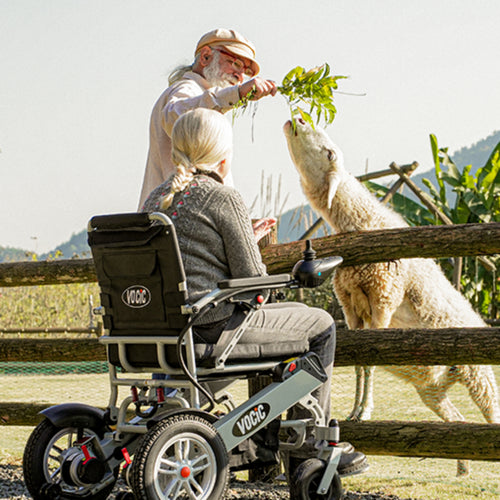Postoperative recovery is an important part of the treatment process, which directly affects the patient's health status, treatment effect, and postoperative quality of life. The purpose of this paper is to discuss how to rapidly promote patients' postoperative recovery.
Which Surgery Takes the Longest Recovery Time?
The recovery period after surgery can vary greatly depending on the type of surgery. Some surgeries require a longer recovery period, while others may have a lighter or quicker recovery process.
- Surgeries with slow recovery: For example, complex surgeries such as heart surgery or neurosurgery require a longer recovery period because of their complexity. Patients need careful monitoring and rehabilitation to ensure full recovery.
- Surgeries with moderate recovery: Some surgeries are quicker to recover from. For example, an appendectomy or hernia repair requires a modest recovery period to allow the patient to gradually return to daily activities. Typically, the recovery period for these surgeries is two to four weeks.
- Rapid Recovery Surgeries: Recovery from minimally invasive procedures such as laparoscopic cholecystectomy and laser eye surgery is rapid, and patients typically return to normal activities within a few days to a week after surgery. Recovery varies for each individual, so follow your doctor's advice.

The Importance of Postoperative Recovery
Postoperative recovery is very important for the patient's return to health and well-being after surgery; it promotes normal healing, reduces complications, and allows the patient to quickly return to normal activities. It is recommended to follow postoperative care instructions and participate in rehabilitation exercises to prevent surgical recurrence and ensure long-term health and stability.
Product Aids That Help Restore Health
Product aids can be useful in helping to promote healing after surgery, facilitate daily activities during recovery, and ultimately promote a smoother recovery process. Below are some of the aids that can help in the recovery process:
- Walking aids: Mobility aids include crutches, rolled walker, and wheelchairs designed to help patients maintain balance and stability during rehabilitation. Crutches provide additional support for walking and are suitable for patients who are partially weight-bearing and need increased stability. Walkers are for patients who need more support and stability and are usually equipped with wheels and brakes for ease of use. And wheelchairs provide mobility and independence for patients with limited mobility. Mobility aids can help patients move better and perform daily activities during the rehabilitation process.
- Bed aids: The primary function of bed aids, such as bed rails and bedside rails, is to enhance safety in bed, prevent patients from rolling off during sleep, and provide mobility support. Helping patients to safely move from lying to sitting or standing in bed provides a firm point of support, increases patient independence, and reduces the burden on caregivers. With these aids, patients can move more confidently in bed while ensuring safety and comfort.
- Toiletries: Toiletries such as long-handled brushes, shampoo basins, and shower chairs are designed to help make it easier for patients to complete their daily washing and personal hygiene during recovery. Long-handled brushes allow patients to easily clean hard-to-reach areas without excessive movement. The shampoo basin allows bedridden patients to wash their hair in the comfort of their beds, avoiding the need to move to the bathroom. Shower chairs provide a safe seating position, allowing patients with limited mobility to reduce the risk of slips and falls while showering. These tools enhance patient self-reliance and safety when performing routine hygiene maintenance.
- Sleep aids: Sleep aids include pillows, neck cushions, and body support pillows, each of which helps provide a comfortable sleep position that promotes rest and recovery. Pillows adjust the position of the head and neck to minimize pain; neck cushions are designed to support the neck and reduce neck discomfort; and body support pillows provide support for the entire body. These tools can improve the quality of sleep and help the body recover.
- Rehabilitation training equipment: Rehabilitation equipment includes balance boards, resistance bands, and quad trainers, each of which meets the different needs of patients during rehabilitation. Balance boards improve core muscle stability and balance through unstable surfaces; resistance bands are used to build muscle strength and flexibility in various muscle groups throughout the body; and quad trainers focus on strengthening arm and leg muscles to help restore function and strength.

Foods That Help Restore Health
During postoperative recovery, choose nutrient-rich foods such as lean meats, fish, eggs, and beans to replenish protein and aid in tissue repair. Eat plenty of fruits and vegetables rich in vitamins, minerals, and antioxidants to minimize inflammation and promote healing. As well as drinking plenty of water to stay hydrated, which promotes overall health and recovery. Some foods that can aid in healthy recovery include:
- Fresh fruits and vegetables: Fresh fruits and vegetables are an important source of nutrients for recovery after surgery. For example, oranges and lemons are rich in vitamins, and carrots and spinach are rich in Vitamin A. Consuming more of these fresh fruits and vegetables can strengthen the immune system and promote wound healing.
- Whole grain foods: Whole grain foods are essential for recovery after surgery. For example, oats are a high-quality whole-grain food rich in dietary fiber, vitamins, and minerals. Oats can be cooked and consumed as a porridge to help keep blood sugar stable, provide long-lasting energy, and promote recovery and healing.
- High-fiber foods: beans, whole grains, vegetables and fruits. For example, beans can be cooked and consumed by making soups and stews. It aids in digestive health, reduces constipation, and detoxifies the body.
- High anti-inflammatory foods: fish, olive oil, vegetables, and fruits. Fish is rich in Omega-3 fatty acids, which have a strong anti-inflammatory effect, and can be cooked as well as eaten by grilling, steaming, or poaching to reduce pain and inflammation and promote recovery.
These foods provide the nutrients your body needs to help promote recovery, strengthen your immune system, and provide steady energy and energy.
Tips for Recovering from Surgery at Home
At-home post-surgical recovery techniques are post-surgical recovery measures that patients can take at home after surgery to promote wound healing, relieve pain, improve physical functioning, and speed up the healing process.
- Follow your doctor's instructions: take your medications accurately, take regular breaks, and limit activities as recommended by your doctor.
- Keep the wound clean: Change dressings regularly, avoid rubbing or irritating the wound, and make sure it is dry.
- Eat well: Consuming adequate nutrients, including protein, vitamins, and minerals, can help promote wound healing and body recovery.
- Moderate activity: Engaging in appropriate exercise recommended by your doctor, such as walking or simple gymnastics, can help promote blood circulation and recovery.
- Avoid strenuous exercise: Do not lift heavy objects or perform strenuous exercise to avoid affecting wound healing or causing other complications.
- Keep a positive attitude: Seek support and understanding from family and friends, and maintain emotional stability, which will help with psychological recovery.
- Regular follow-up visits: Keep in touch with the doctor and promptly report any discomfort or abnormal symptoms so that the treatment plan can be adjusted promptly.
FAQ
1. What foods to avoid after surgery?
After surgery, certain foods are best avoided for optimal recovery. These include spicy and fried foods, sugary foods, carbonated beverages, hard-to-digest foods such as raw vegetables and nuts, as well as alcohol and caffeine. It is recommended to follow these dietary guidelines to aid in a smoother recovery.
2. Can I drink coffee after surgery?
It is generally recommended to avoid caffeinated beverages, such as coffee, after surgery, as caffeine interferes with the healing process and may exacerbate postoperative symptoms such as nausea and dehydration. It is recommended to consult with your healthcare provider first for specific instructions for personal recovery.
3. What not to do when recovering from surgery?
During recovery from surgery, you will need to follow your doctor's instructions to the letter, watch for signs of complications, avoid heavy lifting or strenuous activity, attend regular follow-up appointments, and get plenty of rest.
Let’s Summarize
Understand from the above the impact of postoperative recovery on the patient's health, outcome, and quality of life. Postoperative recovery is a critical stage in the healing process that requires patients to follow strict physician care instructions and participate in rehabilitation. The use of aids, such as walkers, can help keep patients stable and safe during rehabilitation and promote recovery.







